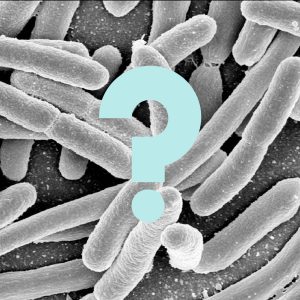If you’ve ever walked into a grocery store or pharmacy, you’ve probably seen probiotics in the “health foods” or supplements aisle. In the past few years, probiotics have gained popularity in the health and wellness industry with claims that supplementing with probiotics can lead to improved digestion and energy, a boosted immune system and just greater health overall. Claims like that certainly can’t be ignored, so we wanted to talk all things probiotics…the good, the bad and the unknown.
Let’s start with what probiotics are. Probiotics are beneficial bacteria that are ingested with the purpose of seeding the gut with good bacteria, which is important because the gut is teeming with little critters. It’s estimated that the human body is actually inhabited by three times as many microorganisms as there are human cells in the body. And of all the places that microorganisms can hide in the body, the gut caries the largest number of microorganisms and at the greatest variety. And while research into the importance of the gut flora and its direct correlation with health has advanced immensely, scientists are still unsure as to exactly how each microorganism plays a role in the body and what the correct balance of those microorganisms should be.

Gut flora can vary greatly from individual to individual, making it extremely difficult to pinpoint all the ways in which gut flora plays a role in health and merely impossible to map out the relationships of all of the microorganisms that thrive there. Some bacteria are known to be detrimental in abnormally high amounts. In fact, it’s proven that babies born via C-section tend to harbor more pathogenic detrimental bacteria such as E.coli and Staph when compared to babies born vaginally and that they take much longer to develop a healthier gut flora and remove those “bad” guys. And people who exhibit higher levels of those bad bacteria later in life also show extreme health issues. In fact, research is beginning to show that an imbalance in gut flora has a strong connection to the brain and can be a significant cause of anxiety and depression in many people. Some microorganisms don’t seem to have any specific role at all and gut flora can vary with age and diet. But if certain microorganisms are linked to a healthy gut flora and improved health overall, why not supplement with them?
That brings us back to taking probiotics. The fact is, science still hasn’t produced enough research to prove with absolute certainty the benefits of supplementing regularly with probiotics. That being said, there remains heaps of anecdotal evidence out there proving the benefits of probiotics for hundreds of thousands of people. If you choose to take probiotics, the biggest thing to remember is that you want to be taking bacteria that are living. Be sure to look for labels that say “living” and/or “active” cultures. And once you buy them, be sure to keep them refrigerated so that they actually stay alive. It’s also important to buy probiotics that are rich in bacteria. Many of the microorganism you actually intake will simply come out the other end, so you increase the odds of seeding your gut with the good stuff when there are more bacteria in each dose. It’s also important to rotate the strains of probiotics you’re supplementing with as your body reaches a limit at a certain point and stops retaining an excess of good bacteria.
While there is no proof of negative side effects when it comes to supplementing with probiotics, we want to stress that probiotics aren’t for everyone. In fact, there is some research that has lead scientists to believe that people who have a severe imbalance in gut flora leaning towards bad bacteria can actually experience severe symptoms when consuming probiotics. These good bacteria can actually feed an overgrowth of bad bacteria in the gut and cause severe digestive issues, bloating, IBS, anxiety, and more. The best advice we can give on this front is to experiment! If you want to up your probiotic intake, try consuming fermented foods that are rich in probiotics like kombucha, sauerkraut, kimchi, kefir and yogurt. If consuming these foods causes bloating, digestive issues or other problems, try adjusting your diet to more whole foods for a significant period of time before attempting to supplement again. For most of us who feel we have a healthy gut and don’t experience any uncomfortable symptoms when it comes to taking probiotics, they really can’t hurt! They’re great to take when you’re feeling sick, they should always be taken when you’re put on antibiotics, and they can potentially help to maintain an already healthy and thriving gut flora.

